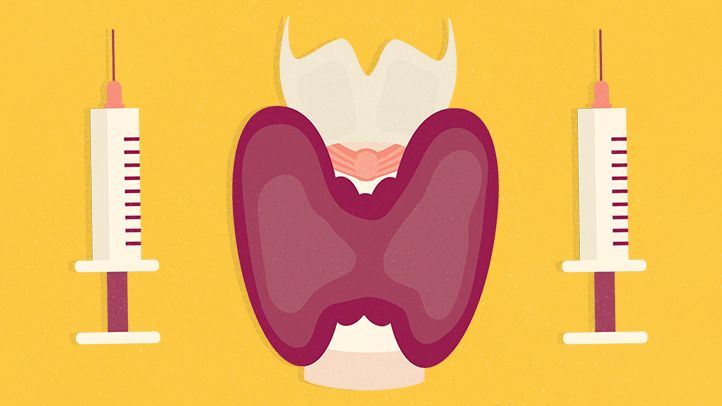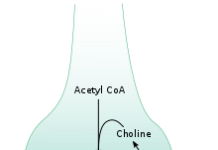Though it may be a challenge to pinpoint the cause of hyperthyroidism, once it’s determined, the disorder can be effectively treated.
What’s the Difference Between Hyperthyroidism and Hypothyroidism?
On the other hand, hyperthyroidism can be a bit more challenging to control and treat — you may end up developing hypothyroidism after treatment. Once your doctor has diagnosed hyperthyroidism though, you can be on your way to recovery.
Learn More About the Difference Between Hyperthyroidism and Hypothyroidism
Causes and Risk Factors of Hyperthyroidism
The following are the most common causes of hyperthyroidism.


Immunotherapy Drugs Tied to Thyroid Problems
A high-iodine diet There’s no shortage of iodine in the American diet. While this mineral is necessary in small amounts, excess iodine (which can happen when a medication such as amiodarone is taken) may lead to hyperthyroidism. This cause of hyperthyroidism is rare.
Top Risk Factors for Developing Hyperthyroidism
- Being female, as thyroid conditions are more prominent in women
- Having an autoimmune disease (including type 1 diabetes)
- Having a family history of Graves’ disease or other autoimmune diseases
- Hypothyroidism that’s overtreated (too much thyroxine medication)
Learn More About the Causes and Risk Factors for Hyperthyroidism
How Is Hyperthyroidism Diagnosed?
To diagnose hyperthyroidism, your doctor may perform one or more of the following tests and procedures.
Duration of Hyperthyroidism
Diet and Lifestyle Tips for Managing Hyperthyroidism
While you can’t fix hyperthyroidism via natural remedies, healthy diet and lifestyle measures can help ease hyperthyroid symptoms.
Hyperthyroidism and Mental Health
Learn More About Diet and Lifestyle Tips for Hyperthyroidism
Complications of Hyperthyroidism
Thyroid diseases are treatable. The key is to diagnose them early to prevent long-term complications. Hyperthyroidism isn’t considered life-threatening. But when left untreated, an overactive thyroid can lead to serious complications.
Complications of untreated hyperthyroidism include:
- High blood pressure (hypertension)
- Abnormal heartbeat (arrhythmia)
- Weakened heart muscle and increased cavities (cardiac dilation)
- Cardiac arrest
- Heart failure
- Stroke
Asian and Pacific Islanders, Black People, and Hyperthyroidism
Related Causes and Conditions of Hyperthyroidism
- Overtreated hypothyroidism
- A recent pregnancy within the last six months
- Type 1 diabetes
- Primary adrenal deficiency
- Pernicious anemia from vitamin B12 deficiency
- Iodine overdoses from eating too many iodine-rich foods or taking iodine supplements
Hyperthyroidism Resources We Love
Favorite Organizations for Essential Hyperthyroidism Info
Hormone Health Network (Endocrine Society)
If you’re newly diagnosed with hyperthyroidism, we recommend reading this overview from the Endocrine Society right away. You may even consider it a one-stop shop for key management info on symptoms, treatment, and causes. As a bonus, the Endocrine Society has a list of recommended questions to ask your doctor so you can go into your next appointment prepared to advocate for yourself.
National Institute of Diabetes and Digestive and Kidney Diseases
Wondering about treatment side effects or if your hyperthyroidism is hereditary? This overview on hyperthyroidism from the National Institute of Diabetes and Digestive and Kidney Diseases is a good starting point. This resource also covers important information on hyperthyroidism and pregnancy.
American Thyroid Association
The American Thyroid Association is one of the longest-serving thyroid organizations around, so it’s no wonder we’ve picked this resource for their expertise. Bookmark this hyperthyroidism review article for information on diagnosis, treatment, symptoms, and causes of the condition. You’ll find yourself better equipped to talk to your doctor at your next appointment.
Favorite Integrative Sources for Hyperthyroidism
American Thyroid Association (ATA)
As with many other chronic health conditions, hyperthyroidism can’t be cured with alternative remedies alone. Still, some complementary treatments may help alleviate your symptoms. If you’re curious about complementary hyperthyroid treatments, read up on what the American Thyroid Association has to say, and talk to your endocrinologist for more information.
Favorite Hyperthyroidism Online Support Networks
Drugs.com
While we’ve found numerous blogs related to thyroid health, Drugs.com is one of the few places that offers online networking specifically for people with hyperthyroidism. Here you can post questions and provide helpful insights to other hyperthyroid patients who need advice. While you’re there, you can read up on some of the latest hyperthyroidism-related news from Drugs.com.
Graves' Disease & Thyroid Foundation
This resource aims to educate people about Graves’ disease. Topics you can read up on include general treatments, anti-thyroid drug experiences, symptom relief, complications, and more.
Favorite Sites for Hyperthyroidism Diet Advice
Harvard Medical School
For quick and easy-to-follow diet pointers, check out this handy guide from Harvard Medical School. Here you can learn about the roles that fiber, iodine, fats, and carbs all play in your thyroid health. We also consider this a good starting point for discussing your dietary needs with your endocrinologist.
EndocrineWeb
If you’ve got the basics down, now it’s time to learn more about what specific foods may help your hyperthyroidism. Endocrine Web’s slideshow covers the five must-have foods to add to your grocery cart for potential hyperthyroid relief.
Favorite Hyperthyroidism Apps
Breathe2Relax
Not only is hyperthyroidism associated with anxiety, but managing it can be increasingly stressful over time. For on-the-go de-stressing approaches, the free app Breathe2Relax, which you can download on the App Store and on Google Play, has you covered. Its program teaches a stress-busting tool called diaphragmatic breathing and offers expert tips on how to elongate your breath. Stress management is key to managing any chronic illness, including thyroid disease.
Favorite Clinical Trial Outreach
EndocrineWeb
Are you looking for a way to participate in clinical research groups for your condition? With your endocrinologist’s consent, you may be able to participate in selected studies in your area while gaining potential treatment. Bookmark the above link from the Endocrine Web to stay updated on all active clinical trials pertaining to hyperthyroidism.
Learn More About Resources for Hyperthyroidism


Editorial Sources and Fact-Checking
- Hyperthyroidism (Overactive Thyroid). Mayo Clinic. November 14, 2020.
- Hyperthyroidism (Overactive). American Thyroid Association.
- Hyperthyroidism. National Institute of Diabetes and Digestive and Kidney Diseases. August 2016.
- Hyperthyroidism. Children’s Hospital of Philadelphia.
- Thyroid Disease. Office on Women’s Health. April 1, 2019.
- Thinking About Your Thyroid: Get to Know This Small but Mighty Gland. National Institutes of Health: News in Health. September 2015.
- Thyroid Function Tests. American Thyroid Association.
- Thyroid Tests. National Institute of Diabetes and Digestive and Kidney Diseases. May 2017.
- Radioactive Iodine Uptake. MedlinePlus. July 10, 2019.
- Types of Thyroid Nodules and Cancers. NYU Langone Health.
- Hyperthyroidism Complications. EndocrineWeb. May 7, 2019.
- Low Iodine Diet. American Thyroid Association.
- Uncontrolled Thyroid: Exercise, Diet Risks. Cleveland Clinic. October 31, 2013.
- How to Manage Stress if You Have Autoimmune Thyroid Disease. EndocrineWeb. June 8, 2020.
- Hyperthyroidism (Thyrotoxicosis). Merck Manual: Consumer Version. October 2020.
- Dong BJ. How Medications Affect Thyroid Function. Western Journal of Medicine. February 2000.
- Thyroid Function Tests. Clinical Thyroidology for the Public. December 2018.
- Q and A: Can Thyroid Disease Be Cured? American Thyroid Association.
- Lillevang-Johansen M, Abrahamsen B, Jørgensen HL, et al. Duration of Hyperthyroidism and Lack of Sufficient Treatment Are Associated With Increased Cardiovascular Risk. Thyroid. March 2019.
- Hyperthyroidism: Prevention. Cleveland Clinic. April 19, 2020.
- Thyroid Disease Risk Varies Among Blacks, Asians, Whites. ScienceDaily. April 15, 2014.
- Della Volpe, K. Prevalance of Graves' Disease Varies Widely by Race/Ethnicity. EncocrineWeb. July 9, 2015.











































